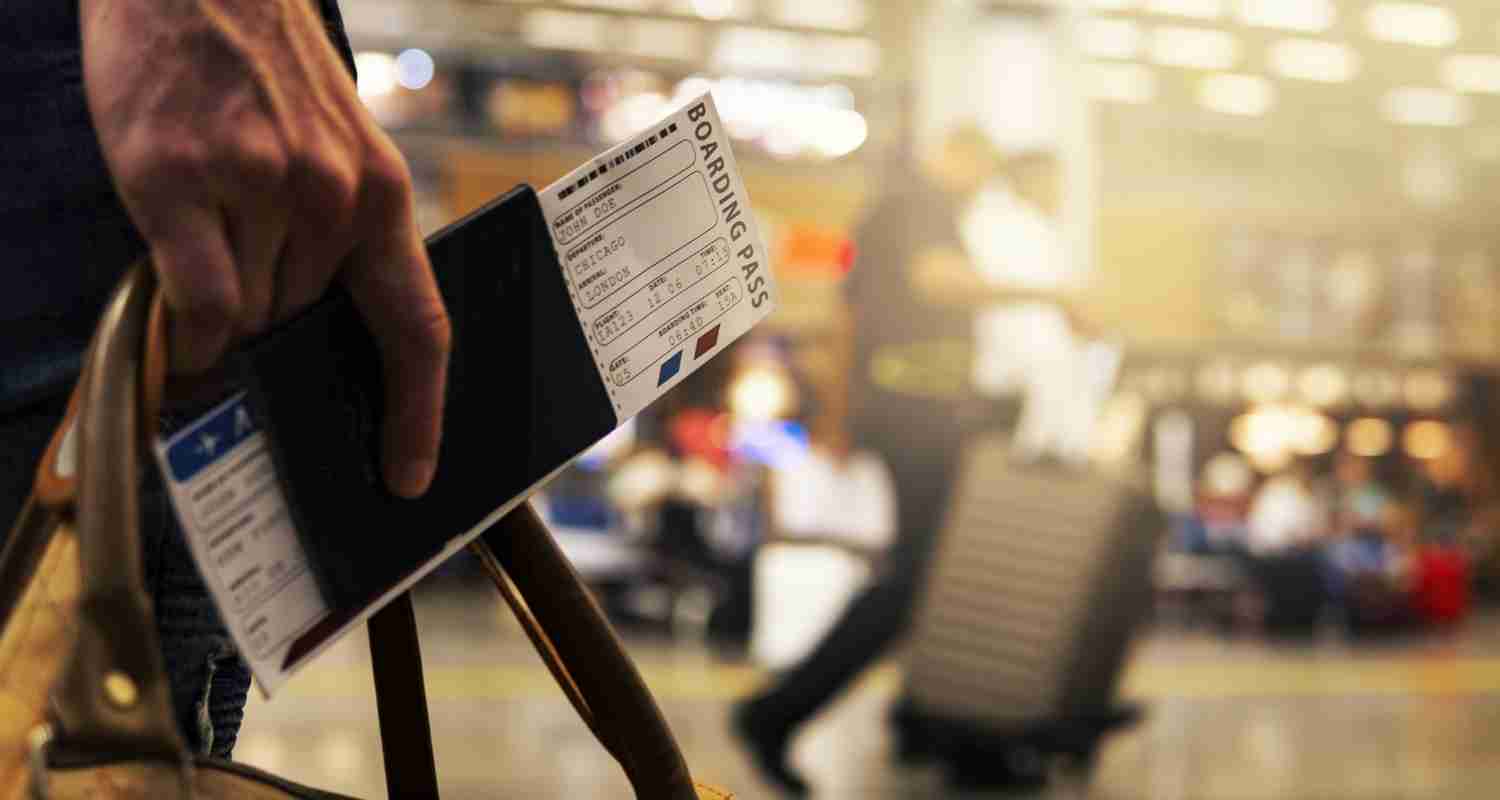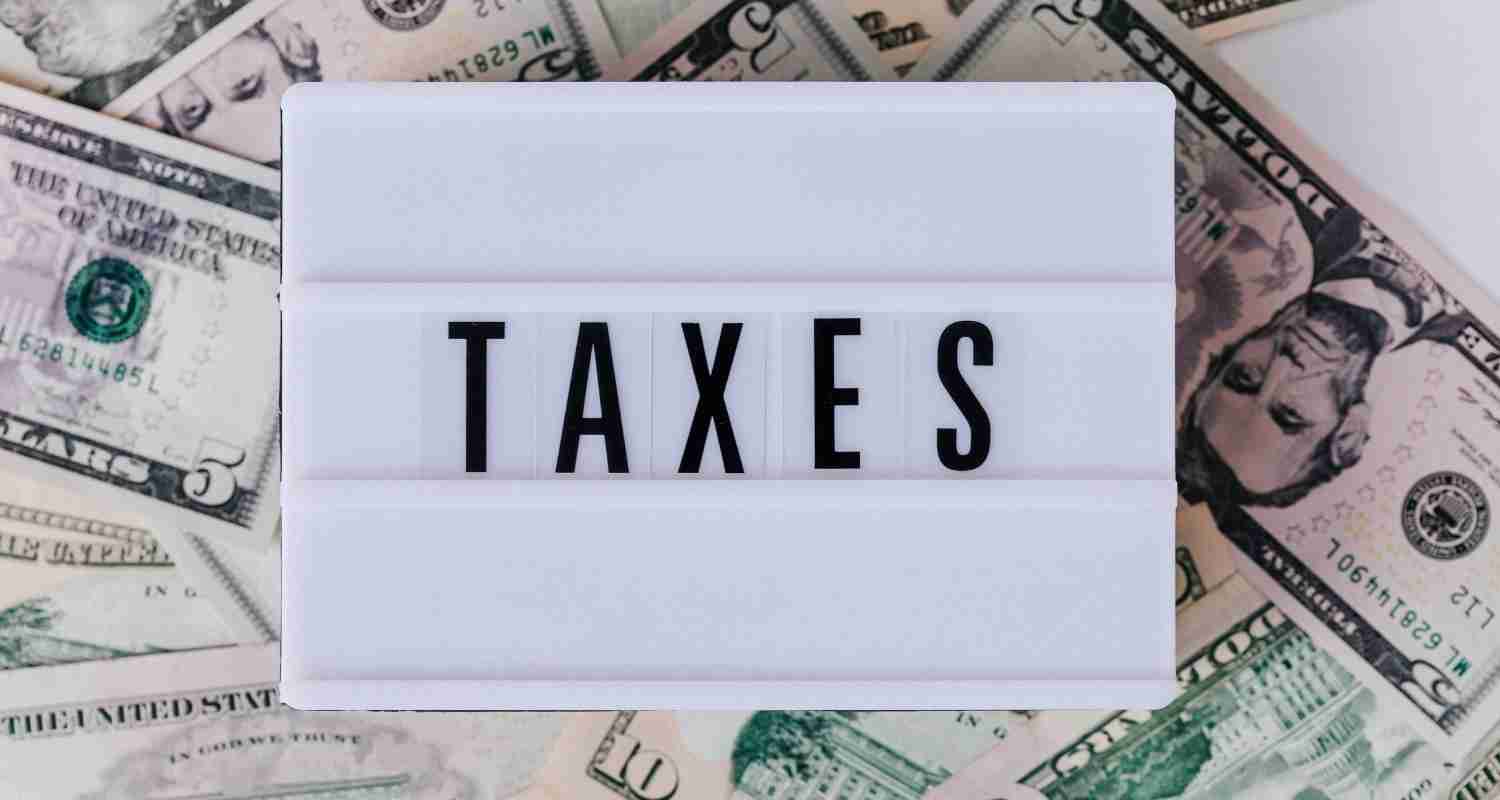Life isn't easy. There are plenty of curveballs that can appear out of nowhere. These can throw a wrench in a household budget and bring havoc to family members.Even if you don't think you need it, an emergency fund can come in handy if an unexpected true emergency appears. It's better to be ready for an unexpected expense than to ignore the need for emergency funds.
In this post, I'll explore a few emergency fund examples you should prepare for, how much to save for your rainy day fund, where to store your money, and much more. Let's get started!
13 Emergency Fund Examples to Prepare For
Many emergencies can appear as a financial surprise to families. It's tricky to know what to plan for, as there are endless emergency opportunities. Still, it's worth your time to save money. There are many items that might make unexpected spending a necessity.
Let's talk about some of the most common emergency fund examples to save additional resources for in your life. There are quite a few options with items that could go wrong, and money set aside can make all the difference.
Home Repairs
Homeowners can enjoy the relaxation that comes with ownership. They can enjoy building equity and decorate the area to their liking. Unfortunately, the owners are responsible for any damages to the house. You might need to dip into emergency money if home repairs are necessary for the integrity and livability of your house.
A few of the most common damages that can happen to home include:
-
Water damage from rain and flooding in the stormy seasons
-
Weather damage from items like hail and severe flooding
-
Theft from an outside party
-
Broken AC/heat systems that handle the entire home
-
Damaged appliances, such as ovens or dishwashers necessary for everyday activities
These can be costly to repair for the average person to take on in their lives.
Some home repairs can cost thousands of dollars just for one fix. Saving money as part of your monthly expenses will give you something to fall back on if unexpected damage arises.
The cost of home repair depends on where the damage happens and the type of work required to fix it. Bad weather, dangerous people, and old components can lead to these unwanted moments that require repair.
Related: How to Live Mortgage Free
Job Loss
One of the best reasons to put living expenses into an emergency fund is to prepare for job loss. You should save money on the side that will serve as a way to live for a few months if a family member loses a job that provides significant financial stability for the home.
A few things that might contribute to a job loss include:
-
Lack of experience in the position: An employee cut might happen, and the employee with the least experience is often the one that gets cut.
-
The decline of income for the company: A lack of income means a company can't pay as many people to work.
-
No need for that position anymore: A position might be pushed out by technology or lack of company income.
-
Poor attitude: You might have a poor attitude that the company does not want on their team any longer.
-
Ill-defined employee expectations: You might not fulfill expectations that were not explicitly stated at the start of your employment.
Some of these can be prevented, but some cannot.
Although many households have two adults working to support the home, many rely on a single income. If this is the case in your house, an emergency fund can be a temporary income if the provider loses their job. They can hunt for a new one with the knowledge of a support system in place.
Related: How to Make a Living Without a Job
Pay Cut
A pay cut isn't a job loss, but it's devastating nonetheless.
You never know when a job might change and result in less pay for an individual. If living expenses become higher than what the new income can support, you need an emergency fund to get the household through until your family can decide the best course of action for your life.
A few reasons why a pay cut might happen include:
-
Economic challenges: The company you work for might experience economic challenges. The pay cut will often be company-wide in this case.
-
Change of position: You might shift to a position that does not pay as much in the company.
-
Personal choice: Sometimes, a pay cut is a personal choice, particularly if you're changing careers.
Some of these can be stopped, but others can appear out of nowhere without warning.
It's best to act in life as if money could disappear. An emergency fund can provide support while the worker negotiates a pay raise or finds a job to earn the old income. Extra cash on hand can make this stressful situation a lot easier than if you were to go without.
Picking up a side hustle can also help you to make money during these tough times.
Business Decline
If you own a business, having an emergency fund set aside for any decline that could happen is essential. You should save automatically to have money ready if there is a drop in business. This extra money can keep your company afloat while you work to recover what's lost.
A few things that might cause a business to decline include the following:
-
Severe financial hurdles: There might be a lack of customers, working capital, or adequate funding to get started in the business world. There might not be enough money to keep everything running daily.
-
Issues in marketing: Marketing is critical. Whether there is a lack of budget for ads or no one to market, this trouble can be the downfall of a company in the end.
-
Poor business planning: A food business plan can prepare you for the future and open doors for potential loans. A bad business plan can lead to disaster.
-
Bad management: A manager might be inexperienced and incapable of handling the business set in front of them. If there is one person or too many people to handle, a business can decline.
Some of these are preventable, but some cannot be anticipated.
The decline of a business can be devastating to a family, especially if the company is the core income for the household budget. An emergency fund provides a support system if your company goes through hardship in its existence.
Related: Benefits of Being an Entrepreneur
Funeral Expenses for Unexpected Death
Unfortunately, life is more precious than we realize. An unexpected death can happen at any moment. According to nfda.org, the average cost for a funeral is $7,848. If you have money automatically transferred to an account every month, you will be ready to cover expenses for a funeral that comes without warning. It will give you comfort in a time of fresh grief.
A few expenses associated with unexpected deaths include:
-
Service fees: The location that houses the memorial will need the payment for the area and operations.
-
Transportation: The body will need transportation to the location of burial.
-
Casket: To bury, there will need to be an investment in a casket for the passed individual.
-
Burial or cremation: There will need to be paid for either burial or cremation.
-
Embalming: For a live funeral, someone will need payment to embalm the body for viewing.
These are necessary for the comfort of everyone involved.
If you have a loved one that passes away unexpectedly, an emergency fund can allow time to grieve rather than worrying about the cost of putting the loved one to rest. It's not fun to plan, but it should be in your mind when setting up a critical savings account.
Medical Emergencies
Have you ever been to the emergency room in the middle of the night, dealing with a medical emergency you never thought possible? Medical expenses can appear without warning. Whether for a broken arm or a severe illness, it's vital to have a rainy day fund available for the costs that will become apparent with every passing day. According to debt.org, the average cost for an emergency visit was $1,389 in 2017.
Some of the most common medical emergencies you might experience include:
-
Heart attacks
-
Breathing troubles
-
Strokes
-
Cancer
Without insurance, these can be pricey and cost a fortune.
It's not uncommon for medical expenses to cost hundreds of thousands of dollars, especially if the crisis requires a stay in the hospital. An emergency fund will allow your family to withstand the prices in the healing process.
Car Repairs
Cars are one of the most expensive items an individual can own.
If you have a vehicle, save money for car repairs. The older the automobile, the more often you will need to take the item in for fixes. It can help you have a savings account dedicated to keeping the car intact with car payments.
A few of the most common car repairs include:
-
Engine repairs
-
Tire replacements
These can add up fast, and some repairs might be necessary often.
If you need to pay for car repairs often, the expenses can quickly add up. You can then utilize an emergency fund to purchase a new car instead of fixing your older one. No matter how quality your vehicle is, the chances are that you will need an emergency fund to handle repairs at some point during your ownership.

Moving Expenses
Moving is not a cheap endeavor, and there are moments when it may need to happen fast. You might lose a job or move to be with a sick family member. Whatever the reason might be in your life, there are many moving costs you should be ready to pay for during the process. An emergency fund can cover these and make the process much simpler.
A few of the most common moving expenses include:
-
Movers fees
-
Moving insurance for your items
-
Optional charges for movers
-
Truck rentals, if moving yourself
-
Gas
-
Storage units for extra items
Getting your stuff from one place to another is not a cheap endeavor.
Extra money in an emergency fund will come in handy during your shift from one place to another. You might need to move for a variety of reasons. More money can make everything a lot simpler than it would be otherwise.
Family Emergencies
An emergency fund can benefit family emergencies. These can arise at any moment, whether in terms of the health of a family member or the debt they might be in. Whether saving for hospital bills or credit card debt, family emergencies make an emergency fund extremely relevant for the average individual.
A few other examples of family emergencies include:
-
The birth of a new baby
-
A car accident
-
An unexpected serious illness
-
A mental health crisis
-
Adoption or placement in foster care
Some of these are wonderful, some are trying, but all of them provide unexpected expenses that an emergency fund can help within your life.
One of the most wonderful and terrifying things about being part of a family is that anything can happen at any given moment. An emergency fund can provide ease, no matter which side of the scale an incident falls on in your life. Preparation is critical no matter what.

Cost of Living Increases (Inflation)
Over the past ten years, the cost of living has gone up almost everywhere. If you live in a coastal city or an apartment that is not rent-controlled, an emergency fund can prepare you for any cost of living increases that might happen in your area.
A few things where you might expect to see prices increase include:
-
Home and apartment prices
-
Food and grocery options
-
Family expenses like daycare and childcare
-
Health care costs
-
Transportation fees
-
Credit card expenses
-
Classroom costs
These can go up, often without the time to prepare an emergency fund at the last moment.
As the world changes, prices for living items will likely go up. An emergency fund provides a support system through savings accounts to ensure your family can still afford the necessities no matter what happens.
Unexpected Travel
Unexpected travel can become a necessity. You might have a family member that has grown ill or perhaps has been drawn across the country for an emergency work trip. A savings account can cover the various travel expenses with last-minute travel opportunities in any life.
A few of the reasons unexpected travel might happen include:
-
Illnesses or deaths with a family member or close friends
-
Birth in the family
-
Necessity for care
-
An issue with a child in college far away
These might necessitate an emergency flight without much planning.
If you invest in a flight close to the day it happens, the price is often inflated to a ridiculous price. An emergency fund can cover the cost of a flight that occurs at the last minute. It helps to have money set aside if you think there's a potential for travel to happen.
Random Expenses
Life has a sense of humor. Did your TV fall off the wall? Did your pet eat something out of the trash? Did your child purchase an expensive application on your phone? Tons of expenses can appear, and you need to have enough money saved to pay for anything that might arise.
A few of the other random expenses that might appear include:
-
Gifts for special occasions, such as weddings or birthdays
-
School expenses, such as tuition fees and technology costs
-
Charitable payments
-
Leisure costs, such as hotel charges and food costs
These can take a decent chunk out of the average person's checking account.
The more money you have, the more you should set aside. Anything that can happen will happen, and you need an emergency fund to provide comfort in your everyday life. An emergency fund is a necessity for people from all walks of life. Create a savings account specifically for these costs to permit a sense of ease in your life.
Unexpected Taxes Owed
Taxes are stressful. In the chaos of life, you might owe money when all is said and done. You want to address these expenses as soon as possible. The longer you fail to file a tax return, the more interest and penalties will appear. The government can even take your assets if you don't pay.
A few reasons unexpected taxes might happen include:
-
Too little withheld from income
-
Bonus income not subject to withholding
-
Difficulty in quarterly tax estimates
-
Self-employment taxes
-
Tax return changes
These might make you owe more taxes than you anticipated as opposed to a tax refund for your payments.
Whatever the reason, don't wait to file your taxes. Pay as much as you can. This moment is where the emergency fund is helpful. You can dip into your emergency savings account to prevent debt due to the additional costs. Set monthly costs aside to create a financial safety net for a financial emergency.
How Much Should I Save for my Emergency Fund?
We've talked a lot about the items you might need to have easily accessible money saved for in your life. However, we haven't talked about how much you should have. What should your savings goals look like if you want to have enough cash to cover major expenses?
Many experts claim that a family should have half a year of a household budget saved if an emergency occurs.
It's good to get into a savings habit whenever possible. Every little bit of money counts when it comes to preparing for the unexpected.
As a family, set aside financial goals for the month. Whether a one-time payment or a few times, extra cash is beneficial. You need a cushion to fall back on in case anything goes wrong.

Don't worry – we hate spam too. Unsubscribe at any time.
Where Should I Store My Emergency Savings Fund?
The best place to store an emergency fund is in a high yield savings account. Each account is federally insured, up to $250,000 per person. You know your money is safe in these accounts.
Over time, the money gathers interest and can be taken out when necessary. This action can happen through a funds transfer or a withdrawal.
The most critical items to look for when searching for high yield savings account for your emergency fund include:
-
Interest rate: How much interest does the account pay? Is it introductory or standard? How beneficial will the interest rate be for your emergency fund?
-
Initial deposit: Are you able to deposit the minimum? Can you afford the amount without falling under financial hardship?
-
Minimum balance: Can you meet the minimum amount at all times? Does your financial situation allow for the upkeep of this amount?
-
Fees: Are there any fees in the account or ways to avoid the fees? Can you afford the fees they will charge for your emergency savings?
-
Links to other accounts and banks: Are you allowed to make links to other accounts and are there any restrictions you need to be aware of with the emergency fund?
-
Access options: How are you allowed to access the money saved?
-
Deposit methods: How can you deposit funds into the savings account? Are there direct deposit options? Debit card?
-
Compounding choices: How often does compounding happen? Daily, monthly, quarterly, smile-annually, or annually?
It's critical to examine these to find the best bank account for your emergency savings to make the best environment possible. My favorite account is through CIT Bank. They offer 5 times the national average interest rate and you'll only need $100 to open your account. Create your account below to get started!



Once you have your emergency funds in ideal savings accounts, you can turn to them whenever you are in need. You never know what life might bring – financial security can help if you find yourself subject to unexpected expenses at any given moment.
Related: Safest Place to Keep Cash at Home
Final Thoughts on Emergency Fund Examples
Anything can happen at any moment, no matter what your life looks like. You can prepare for moments of unexpected financial need by setting aside money to cover expenses that appear without warning. If you have financial stability, try to set aside a portion of your monthly budget to create a safety net.
Life can be scary and unpredictable. The more prepared you are for financial emergencies, the more you can relax in your life. Put any extra money aside and start saving now for the best support. Anyone can accomplish this task with a little bit of work and a fraction of living expenses set aside every month.

Don't worry – we hate spam too. Unsubscribe at any time.











